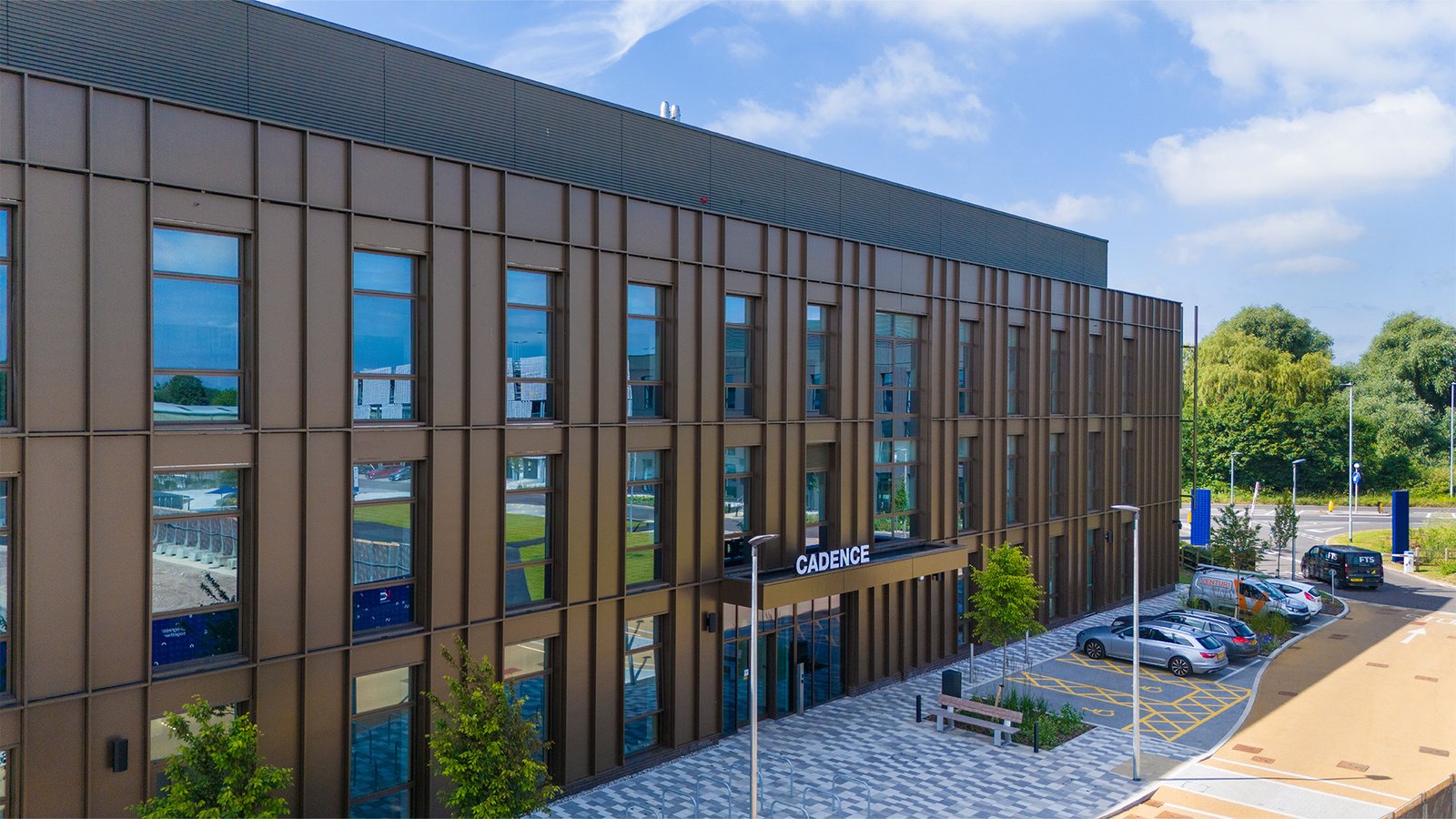News
Groundbreaking nanomedicine company ViaNautis lands at Unity Campus

As ViaNautis, a leader in genetic nanomedicine, officially moves into its new HQ and lab space at Unity Campus, we took some time to speak to ViaNautis CEO Dr Fran Crawford about scaling-up, the Cambridge Cluster’s draw, and what the pinnacle of success looks like.
What differentiates ViaNautis in its field?
ViaNautis operates in the drug delivery field, which simply put means delivering a drug to where it works most effectively. Traditionally, methods like sustained release tablets, transdermal patches, and topical gels have been the conduits for delivery. However, our approach takes drug delivery to a new level: we use nanoparticles to deliver drugs to specific parts of the body and what differentiates our polyNaut® technology from others is the type of vesicle we have, the composition of that vesicle and how we can direct it throughout the body.
Using our proprietary technology platform polyNaut®, we have the ability to target specific cells, such as neuronal cells in the brain, or epithelial lung cells, using safe, biodegradable polymer materials and advanced bioinformatics for precise targeting. Unlike other companies who use lipid nanoparticles or viruses, our system avoids immune reactions and can be dosed repeatedly.
We also have a highly stable system that whilst biodegradable can retain activity at normal temperatures. Unlike some mRNA vaccines, which required storage at -80°C because they use lipid nanoparticles, our technology enables storage in a refrigerator.
Do you use your technology for your own treatments or license it out to others?
Both. We have our own pipeline, which is currently focusing on a brain indication for a rare disease and a lung programme for cystic fibrosis. We are also involved in partnering discussions with other companies, offering our technology for collaborative phases that may lead to licensing agreements.
What have been ViaNautis’ biggest milestones to date?
Scientifically, our most significant milestone to date has been establishing the feasibility to use our technology for genetic materials, which in turn has positioned us prominently in this high-demand field. Financially, raising a substantial Series A funding of $25 million also marked a major turning point, enabling us to expand our team and operations.
What are your aspirations for the next 6-18 months?
Our goals include advancing our products towards clinical trial, formulating suitable candidates for preclinical testing, and when the time is right, we will look to raise further capital to support the growth of the company.
What are you looking forward to most about being part of Unity Campus?
Scaling up at Unity Campus is the right move for us. Our new home, Cadence, is a new build which has been designed and fitted out to perfectly suit our needs. The Campus has super facilities and events, and I hope the team will interact with the many like-minded companies that will be surrounding us.
At our current location we are in three different laboratories, quite far apart, with no private office space for confidential conversations. So, I’m really looking forward to having everyone in the same building at Unity Campus, interacting and collaborating more easily.

What is it about being part of the wider Cambridge cluster that’s so important?
Many things. It’s the ease of readily accessing specialist professional services, the day-to-day engagement with other scientists and other scientific companies.
I have recruited hundreds of people over the years and know that there is also the draw of a big pool of talent based around Cambridge. We’ve grown the team significantly with some outstanding people in recent months and are continuing to grow it.
What would your advice be to a postdoc currently in academia and potentially considering a move across to industry?
By and large I find people are either academics or are more commercially minded. Both are wonderful careers. The first thing to consider is where your interests lie and where you want your freedoms to be. Do you want to pursue basic scientific research? Or do your interests lie in product development, be it a pharmaceutical product or a device, in a commercial environment?
If it’s the latter, absolutely go for it. I’ve seen examples over the years of people taking the leap and realising it’s not for them. You sometimes have to sacrifice your scientific research credentials or curiosity for the greater aim of the company. Others, like me, have made that switch and never looked back.
Having completed my first post-doc, I was curious to gain a broader understanding of the industry away from the lab bench. I moved into the commercial environment and learnt how to develop products, grow companies and expanded my understanding of licensing, IP and the myriad of commercial factors intrinsic to this industry. Having done that, I got involved in starting and scaling new life science ventures myself, which I have found challenging and rewarding in equal measure!
You have vast experience in starting up, advising, and scaling companies. What excites you about this cycle and process?
The excitement comes from seeing scientific ideas become therapeutics and the satisfaction of seeing the science develop. It’s particularly exciting when the funding comes through, though it can be a long and often frustrating process. Resilience is essential. The thrill of the chase, the interactions with other likeminded people, and watching something grow, much like acorns turning into oaks, is immensely rewarding despite the hard work and challenges. My advice to others – always keep your eye on the main goal.
What is ViaNautis’ vision for the long term?
That’s easy: our overarching ambition is to have a patient with brain disease and / or cystic fibrosis respond well to a polyNaut®-based product such that they are getting better. That’s the pinnacle of success.


 Previous article
Previous article